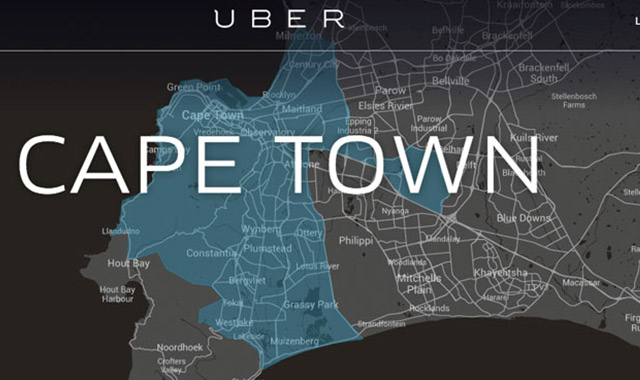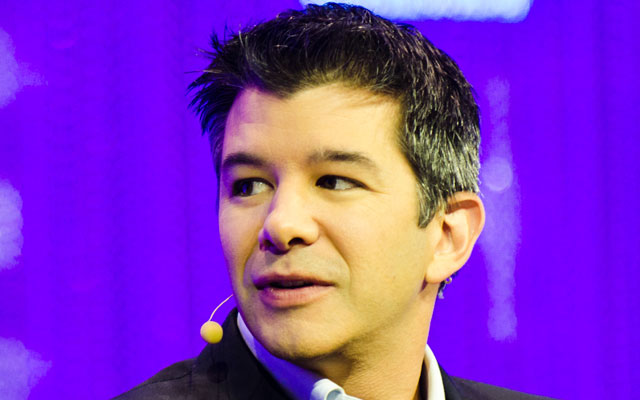
It is now highly likely that the European court of justice will later this year reject Uber’s fiction that it’s simply a marketplace that brings together drivers and riders by declaring it — gasp! — a taxi company. That may not hurt it much financially, but it will set an important precedent: companies that have a software development operation are not entitled to special treatment.
ECJ advocate-general Maciej Szpunar has submitted an opinion to the court, saying Uber is not an intermediary matching supply with demand but “a genuine organiser and operator of urban transport services”, which itself creates the supply. Szpunar’s argument is a clever spin on Uber’s (likely accurate) boast that it doesn’t just take away business from existing taxi services but expands the market. “Drivers who work on the Uber platform do not pursue an independent activity that exists independently of the platform,” the advocate-general wrote. “On the contrary, the activity exists solely because of the platform, without which it would have no sense.”
Uber, Szpunar argued, creates and controls the supply by setting prices and rules for drivers that allow it to “manage in a way that is just as — if not more — effective than management based on formal orders given by an employer to his employees”.
The opinion was filed in a case referred to the ECJ by a court in Barcelona, where the Spanish taxi business association wanted Uber recognised as a taxi rather than information services firm. In Europe, this kind of classification falls under European Union, not national, law. The court complies with the advocate-general’s suggestions in about two-thirds of cases. If it does so this time, Uber will be classified as a transport services company everywhere in the EU, which will mean obtaining the necessary local licences and complying with the same labour and safety regulations as other taxi companies. Uber won’t be able to appeal the ruling, putting an end to an expensive legal and lobbying effort that has spanned the entire continent.
Uber says that won’t change much for it: its UberPop service, which uses amateur drivers without taxi licences, is banned in Spain, France, Sweden, Germany, Italy and other European countries. The company is mostly confined to using licensed taxis and limos in the EU, which makes it difficult for the company to undercut existing taxi services — the cornerstone of Uber’s expansion strategy. As a private company, it doesn’t report detailed financial results. But it’s safe to say that Europe doesn’t account for a large share of its revenues. Last fall, reporters found out from a regulatory filing that in 2015, Uber London, the firm’s UK holding, raked in £23,3m in revenue. Even if the amount doubled last year (it did in 2015), that’s less than 1% of the company’s 2016 revenue — and the UK is the country that has been the most welcoming of Uber in Europe. Other EU nations’ shares of Uber’s revenue are almost certainly much smaller.
Why else would Uber be working so frantically, and taking such legal risks, to develop the self-driving taxi?
Nor is the potential ruling the worst that can still happen to Uber in Europe. Szpunar wrote specifically in his opinion that he wouldn’t address whether Uber drivers are independent contractors, as the company says, or employees. That’s a separate issue that Uber is now litigating in British courts; if eventually the drivers are recognised as employees, that will open up Uber to large social contribution payments and force it to comply with, for example, the 3 800-page body of French labour law. As it is, the company still enjoys a certain advantage: it can piggyback on existing limo firms’ compliance and avoid the payments and the bureaucracy.
And yet the court decision will be important for the way Europe treats the so-called sharing economy as a whole. If the ECJ accepts Szpunar’s argument, a firm that creates and regulates an offering rather than harness existing supply won’t be seen as a purely technological service, a mere app. There’s a good chance, for example, that Airbnb will be judged as a technological service only insofar as it allows an owner to rent out a spare room in an apartment. If it offers apartments used for short-term rental only — that is, pulls into this market properties that otherwise wouldn’t have been in it — there’s a chance it will be seen as a hotel service, with all the regulatory implications that follow from that.

Uber denounces this way of thinking as regressive, talking about “outdated laws which prevent millions of Europeans from accessing a reliable ride at the tap of a button”. The laws, however, don’t do anything of the kind. Uber and other ride-hailing apps work fine in Europe: if you hit that button, a taxi or a limo will arrive. What European regulators — and now, potentially, the top EU court — are trying to achieve is an end to the misleading narrative that the use of digital technology somehow changes the nature of a real-world service, not just the details of how it’s delivered. A taxi is a taxi by any other name. A hotel is a hotel.
Uber, flush with money to burn, could afford to push the opposite idea in courts from Barcelona to Berlin. It spent less than US$1m lobbying EU institutions last year — spare change compared with its $2,8bn loss. Despite pledges to fix its toxic business culture, it probably won’t adopt a more constructive approach to working with regulators in Europe; it’ll keep fighting to the bitter end, just because it can.
Regulatory arbitrage and the ability to subsidise low fares with other people’s cash are not innovations or sustainable advantages
The likely court decision, however, sends a message to Uber investors. If it is adopted and Uber complies throughout the EU, it’ll be interesting to watch the company’s European business separately. That will enable investors to see how much Uber’s only truly innovative service — the app — is worth. Regulatory arbitrage and the ability to subsidise low fares with other people’s cash are not innovations or sustainable advantages; the rest of the world should eventually catch on and strip them away.
There’s probably enough value in the app — the same for 581 cities today, which is convenient for travellers — to sustain Uber as a business. It’s not, however, enough to justify its valuation or build a high enough barrier to competition. Uber CEO Travis Kalanick understands that: why else would Uber be working so frantically, and taking such legal risks, to develop the self-driving taxi? If the company succeeds and manages to roll out that project, it will truly have a claim to being different from traditional taxi companies, and regulators and courts will be hard pressed to apply established definitions to it. — (c) 2017 Bloomberg LP




